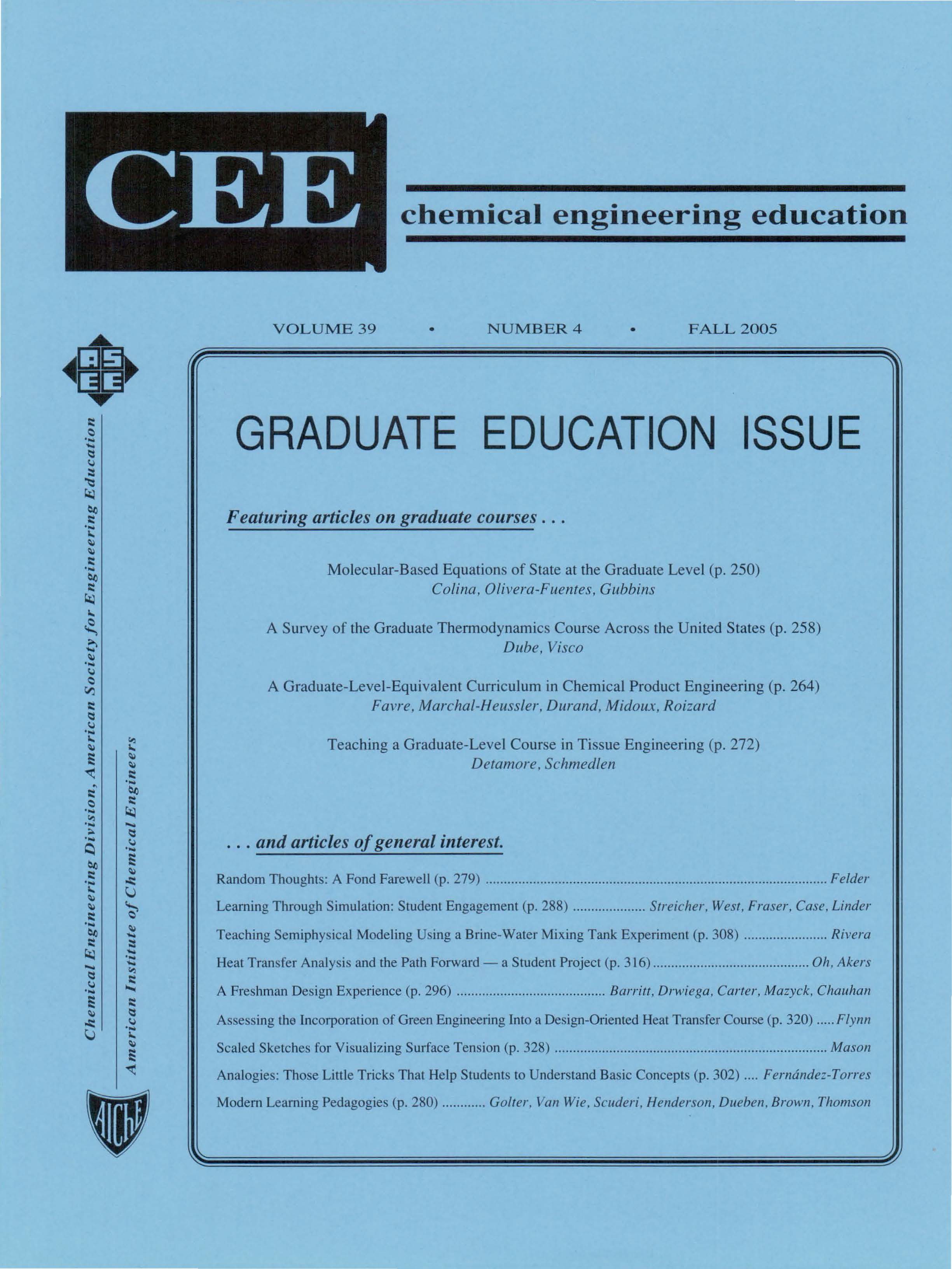Teaching Semiphysical Modeling to Chemical Engineering Students using a Brine-Water Mixing Tank Experiment
Abstract
From 1992 through 2003 the Chemical Engineering program at Arizona State offered an integrated series of core courses that taught students how conservation and accounting principles can be applied to describe engineering phenomena across disciplines. A brine-water mixing tank experiment was introduced in the third course in the series (ECE 394C: Understanding Engineering Systems Via Conservation) as a capstone modeling project for the recitation portion of the course. The experiment provides students with "hands-on" experience on a real-life system incorporating process, electrical, and mechanical components, as well as real-time data acquisition and control. A major feature of the brine-water tank project is that students apply a comprehensive system identification procedure relying on semiphysical (a.k.a. “gray box”) models to complement their understanding of first-principles modeling. This paper describes the brine-water tank experiment, presents the formulation of the semiphysical parameter estimation problem, and describes the comprehensive procedure that students undertake to go from process data to validated plant models.


